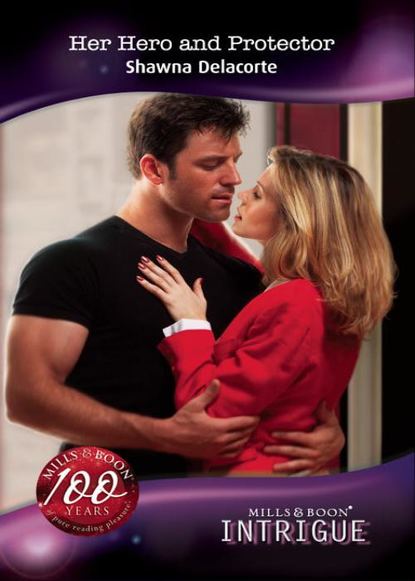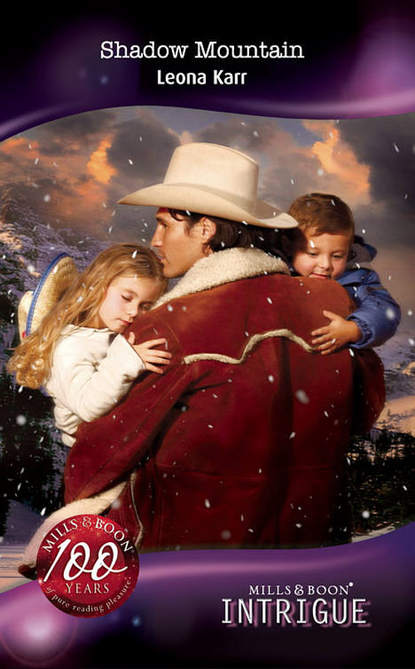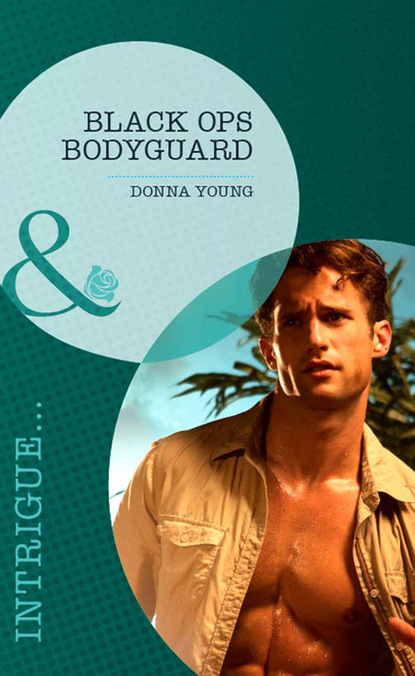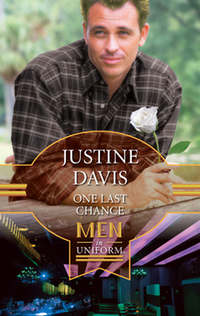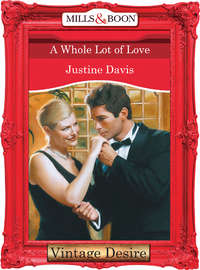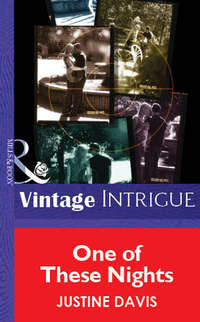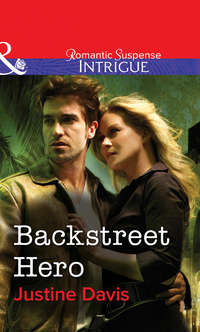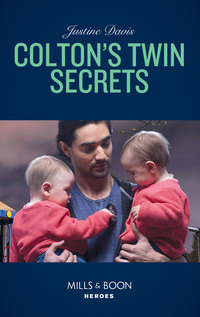
Полная версия
Colton Destiny


“I thought of leaving, once.”
Emma gave him a startled look. “Leaving … Paradise Ridge? Or your faith?”
“Both.”
Caleb stopped, stunned that he had said it, that he had told this stranger, this woman, this English, what he had told no one else. Ever.
“I’ve found,” Emma said, “that it’s never a good or successful idea to run away from something.”
“What did you mean, when you said I didn’t have to worry?”
“I’ve turned up a couple of possible leads. They stopped an older man driving a van with a couple of young girls in it.”
Caleb drew back sharply. “Hannah?”
“No, sorry,” Emma said quickly. “Neither girl is a match to any of ours.”
Any of ours.
She’d said it as if she truly felt it. As if the missing girls were a part of her own community.
Lovely, empathetic and smart—she was all of that.
And to him, apparently, dangerous.
Dear Reader,
One of the most popular stories in fiction is the “fish out of water.” It’s basically a tale of someone cast into a world strange to them, where they don’t have the skills to survive, or don’t have the knowledge of the culture to keep from drawing unwanted and sometimes painful attention to themselves, a world where they quite simply Don’t Belong.
This would be me and, say, computer programming. Call me clueless, but I have no idea. I’m just glad others do. Some days I wonder what life would be like without technology, what it would be like to simply unplug.
The Amish have chosen to live that life free of those electronic ties. Their world is above all peaceful, and also separate, yet it seems inevitable that now and then our world will intrude into theirs. Such is the case in this story, where the clash of worlds is cold and harsh, yet out of the collision grows an unexpected connection between two people with the odds stacked against them. Can the “fish out of water” make the changes necessary to get to her happy ending?
I hope you enjoy it.
Justine Davis
Don’t miss the next three books in
THE COLTONS OF EDEN FALLS:
Colton’s Ranch Refuge by Beth Cornelison
Colton’s Deep Cover by Elle Kennedy
Colton Showdown by Marie Ferrarella
About the Author
JUSTINE DAVIS lives on Puget Sound in Washington State, watching big ships and the occasional submarine go by, and sharing the neighborhood with assorted wildlife, including a pair of bald eagles, deer, a bear or two and a tailless raccoon. In the few hours when she’s not planning, plotting or writing her next book, her favorite things are photography, knitting her way through a huge yarn stash and driving her restored 1967 Corvette roadster—top down, of course.
Connect with Justine at her website, justinedavis.com, at Twitter.com/Justine_D_Davis, or on Facebook at Facebook.com/JustineDareDavis.
Colton Destiny
Justine Davis

MILLS & BOON
Before you start reading, why not sign up?
Thank you for downloading this Mills & Boon book. If you want to hear about exclusive discounts, special offers and competitions, sign up to our email newsletter today!
SIGN ME UP!
Or simply visit
signup.millsandboon.co.uk
Mills & Boon emails are completely free to receive and you can unsubscribe at any time via the link in any email we send you.
Chapter 1
“Hey, tomato-head.”
For an instant Emma Colton thought she’d somehow slipped back in time, that she was back on the ranch being rudely awakened by her annoying brother Tate, who was three years older and had teased her incessantly about her rather bright red hair.
Clutching her phone, she blinked the sleep out of her eyes, the sight of the familiar bedroom of her Cleveland apartment orienting her back into the present. Still, as she shoved her tangled hair away from her face, she felt a tiny frisson of relief that it was still the darker, richer auburn of adulthood. That made her smile, until she realized what time it was.
She yawned. “You don’t even have the excuse of a different time zone, bro. This better be good.”
“I take back tomato-head. Sleepyhead fits better,” Tate Colton said.
“It’s five in the morning. I thought I was the workaholic in the family.”
“Please. It comes with the Colton name. You’re just worst than most. Except maybe Uncle Joe.”
She laughed, humor restored. The man they’d grown up calling Uncle Joe, although he was in fact their late father’s cousin, was indeed dedicated to his work. That hadn’t prevented him from standing in for their deceased parents on occasion. Like every Colton, he took family responsibilities very seriously.
Almost as seriously as he took his job as president of the United States.
“So what is it that has you waking me up at this hour?”
“I need your help, little sister.”
Something had changed in her brother’s deep voice. The teasing note had vanished, replaced by a grim seriousness. Instantly she responded, sitting up straight, shoving aside the warmth of the covers.
“What?”
“I’ve got three missing girls.”
As a Philadelphia police detective, Tate having a case of even three missing girls sadly wasn’t shocking. Nor would that alone necessitate this early-morning call to her; if he needed FBI help on a case, he had his own contacts. Not that the name Colton wasn’t enough to get him in about any door he wanted at the Hoover Building.
“Why me?” she asked. “Not that I don’t mind giving you wise advice, even though you never take it, but—”
“They’re Amish.”
Emma went very still. “Three?”
“Yes.”
“When?”
“Two weeks. The usual reluctance to involve outsiders.”
She knew it too well. “How old?”
“Sixteen to nineteen.”
“Rumspringa?” Emma asked. Growing up on the family ranch in Eden Falls, Pennsylvania, the Amish and their ways had always been part of the fabric of her life. Rum springa, that time when young people are allowed to explore the outside world, then make their own decision on whether to return to the religion and simple lifestyle of the Amish, had always fascinated her as a teenager. She simply couldn’t picture why anyone would voluntarily leave behind the world of convenience and technology for such … deprivation. Yet eighty percent of them did.
Now she wasn’t quite so arrogant about her assumptions. She’d seen enough in her years as an FBI agent to understand the appeal of pulling back from the hectic, crazy—and sometimes perverted—world of today.
She realized she was tracing the intricate pattern of the quilt on her bed. An exquisitely designed and handmade Amish quilt, a traditional diamond-on-point pattern in soothing blues, that she’d brought with her from home. Her mother had purchased it from one of their neighbors, had loved it and cared for it so well it seemed almost new. It had come to her as the eldest daughter, after that horrible, shocking day in September 2001, the day that had stolen the loving, generous couple who had taken them all in, adopted them and given them a life beyond anything they ever could have hoped for—
“Emma?”
She snapped out of her reverie. “Sorry. What?”
“I said yes, Rumspringa. They’re all from Paradise Ridge.”
That brought it even closer to home for her; Paradise Ridge literally bordered the Colton ranch. She might even know the families, she thought with a sudden qualm. They had often bought fresh produce and milk from the local farmers.
She had a sudden vivid flash of memory. A young Amish girl near her own age of ten, from when she and her father, Donovan Colton, had stopped to offer assistance to a driver of one of the iconic Amish carriages that added tourist-drawing quaintness to the Pennsylvania countryside. One of those tourists had passed too close in their rental car, clipping the corner of the carriage and sending the right rear wheel onto rain-softened ground, and then proceeded merrily on their way, either uncaring or oblivious to damage done.
She remembered her father pulling the ranch truck up behind the carriage, angling it so that no oncoming car could repeat the incident.
The first concern of her father, a horseman of many years, was the welfare of the animal pulling the carriage. Emma herself had been fascinated by the child who remained in the carriage while her father had gotten out to inspect the damage. She remembered the girl’s simple dress, in contrast to her own jeans and T-shirt. She remembered the vivid blue of her eyes as she peeked out to stare in apparent equal fascination at Emma. The only thing she remembered from the conversation between the adults was the Amish man’s quiet acceptance; he expected no better from the English, as they called anyone not Amish.
She shook her head, ordering herself to stop meandering and pay attention.
“You think your case is connected to mine.” It wasn’t a question. Didn’t really have to be. But Tate echoed her own thoughts on the matter anyway.
“I think the likelihood of two independent serial kidnappers—and maybe killers—targeting the exact same class of victims, even three hundred miles apart, is slim.”
“But possible.”
“Anything’s possible. But likely?”
“No.”
Sometimes both their jobs relied on simply going with the odds, Emma thought. Still she hesitated. She was reluctant to abandon, even temporarily, her own case. She had not just three, but a string of missing girls going back nearly three months. But because of that reluctance to involve outsiders, and even more to involve federal outsiders, she’d been called in so late there had been little to find, and the suspect’s trail and the case had quickly gone cold.
Because they’d relocated to Pennsylvania?
“I need you, Emma. You’ve been working your case long enough, you’ll catch anything that might prove or disprove that mine are connected. And you always did relate better to them than any of us.”
Not that any of the Colton brood didn’t get along, Emma thought. They’d been taught to respect their quiet, peaceful neighbors and appreciate their industrious ways. But Tate was a Philadelphia cop and had come a long way from those youthful, halcyon days on the ranch.
“All right,” she said decisively. “I’ll be on my way.”
“Text me your flight number. I’ll pick you up, bring you up to speed on the way to the ranch.”
Emma hung up and scrambled out of bed. She called her supervisory agent and left a long voice mail explaining, emphasizing the likely connection to their case to head off any dissent about her being called in by her brother. It was legit, she told herself. If the cases were related, then it crossed state borders and they were involved anyway.
Then she made a reservation for the next flight from Cleveland to Philadelphia. She could probably drive it in about the same amount of time, but wanted to arrive fresh and have a chance to study the pictures and basic details Tate was sending.
Her timeline now set, she showered, quickly dried her hair and pulled it into her usual ponytail. Then she went about the business of packing, although since she and her family had enough clothing left permanently at the ranch to handle everything but the longest visit, it was mainly toiletries and the rather severe pantsuits she generally wore. They were expensive, yes, but subtly so and made to last.
She’d long ago decided she wasn’t going to stress out over what to wear to present the proper image; she’d found a style that worked, plain, simple, yet exquisitely cut to flatter, and bought several in the colors she considered acceptable for work—black, dark blue or gray. Not only was it easier, but if she was always wearing the same thing, her attire—and the severe hairstyle—never distracted from her professional demeanor. Sometimes she even resorted to dark-framed glasses to somewhat mask the vivid green of her eyes.
Overall, she strove for a neutral, businesslike look. It was helpful not only with civilians, but with her male colleagues, as well. She had enough trouble with assumptions people made about her, from riding on the Colton name to being a “poor little rich girl,” and she didn’t want to add to them with any blatantly upscale clothing, fancy jewelry or anything else that might remind people of her background. Especially her connection to Joseph Colton, who was, in essence, the boss of all her bosses.
She shook off the old concerns, went to the nightstand and took out her weapon. With no children in the apartment, she kept the Glock 23 ready for use, and she slipped it into the holster at her waist. It had become a part of her now, and she was, sometimes to her brother’s dismay, a better shot than he was. Their phone calls to compare proficiency scores had become a tradition.
Emma smiled. She was so lucky. Tate was the best of big brothers, even if he was a bit overprotective. And as for her big brother Derek … Well, Derek was their rock, his steadfast, solid goodness something they had all clung to at one time or another. And when their parents had left the ranch to him in their will, a will executed far too early, after the vicious sneak attack on September 11, 2001, every shaken Colton child had felt a tiny bit safer knowing Derek would see to it that the ranch remained the refuge it had always been for all of them.
Gunnar, on the other hand …
She couldn’t worry about her troubled, antisocial oldest brother just now. She’d see him soon enough, although she didn’t expect much change.
Despite the grimness of the reason for the trip, she was looking forward to it. She hadn’t been home in a while and hadn’t expected to make it before the holidays.
She smiled at the thought of seeing the kids, as she always thought of her sister, Piper, and little brother, Sawyer. She wondered if they were still squabbling, eleven-year-old Sawyer, with his knack for sarcasm, constantly teasing his big sister, and Piper responding with typical sixteen-year-old drama. The girl was tall, five foot nine and still growing, and Emma suspected Sawyer’s fear that she might end up taller than he, even when he was grown up, was behind a lot of his jabs at the sister he called an Amazon.
As she headed to the airport, she felt the usual pang that accompanied thoughts of her youngest sibling. Sawyer had been an infant when he’d come to them, practically a newborn. He’d never had the chance to know the kind, generous, dynamic couple that had adopted him. For a long time they were afraid they were going to lose him back into the system because of the death of Donovan and Charlotte Colton. Derek, ever the rock even at twenty-two, had spearheaded the Colton resistance to the very idea of losing the baby who was the last piece of their parents’ grand plan. A contingent had flown in from the Texas Coltons to stand with them, impressive enough, but a brief yet powerful video statement made by then-senator Joseph Colton had put the cap on the affair. As a result, baby Sawyer had gone home with his adoptive family.
She realized suddenly why her mind had veered onto this track. The possible loss of their baby brother had been yet another horrific blow to a family that had already lost so much. The Amish community was like one huge family, and they’d been struck again and again. And no family court hearing could restore their children to them.
It was up to her, and now her brother, to find them and bring them home.
“Thanks, sis,” Tate said again. “Any hassle?”
Emma glanced at her brother. He drove as he did anything physical, with an understated ease. He was six foot one, which meant she had to look up at him, even sitting in the passenger seat of his unmarked city car. He glanced at her when she didn’t immediately answer. His eyes were as gorgeous as ever, that almost turquoise-blue that had sent her female schoolmates into raptures, embarrassingly, when he’d stumble across them giggling in the kitchen of the big ranch house at the Double C.
“No,” she answered. “Not a bit.” She paused. Her brother, knowing her well, waited. “Of course, I left the message on his office voice mail. He would have gotten it while I was in the air.”
“So he couldn’t call and yell until he’d had time to calm down?” Tate grinned at her, then turned his eyes back to the busy street leaving the airport. “You always did know how to get your way.”
“You’re just saying that because you never figured out how to be subtle.”
“You mean devious?” Emma grinned back at him, not offended in the least, before he added, “But at least I learned it’s easier to beg forgiveness than ask permission.”
They laughed with the ease of siblings who had grown into a comfortable, loving adult relationship, who looked back on their childhood with fondness. Their lives had been blessed, and even the horrible loss they’d suffered on September 11 couldn’t change that.
“Do you still think about them a lot?” Emma knew she didn’t have to explain.
“Every day,” Tate said quietly. “They saved us all, gave us a life we never, ever would have had.”
“And they gave us each other,” Emma said. “Brothers and sisters we never would have had.”
“Yes.” Tate glanced at her. “They saw to it we would never be alone again.”
Emma sighed. It had taken them a very long time to reach this point. Charlotte—for whom the ranch had been named—and Donovan Colton had been forces of nature, and Emma didn’t think any of them ever got past thinking of them as larger-than-life.
“At least they saw Butterfly Wings come to life.”
“That’s right,” Tate agreed. “They got to see that dream come true.”
The nonprofit organization dedicated to helping inner-city kids was flourishing, and each adult Colton put in their time to make sure it stayed that way. Each one of them knew too well they could have ended up in worse shape than some of these kids if not for the generous, loving couple who had adopted them all.
The thought of kids at risk jolted her back to the reason she was here in the first place. It was time to quit dwelling on her own happy childhood and concentrate on trying to get these innocent girls back to finish theirs.
Chapter 2
Emma had noticed the folders wedged next to the driver’s seat and reached for them.
“These are the full files?”
Tate nodded as he negotiated the transition to Interstate 95 leaving the airport. Emma began to read. Tate had emailed her the basics, but to her dismay there wasn’t much more here. The details on each case were sketchy; either no one had seen much or they weren’t talking.
Or the kidnappers were very, very thorough.
She felt the old chill start to creep up her spine. She fought it down. She knew the old memories colored her reactions, but she refused to let them affect her professional conduct. She’d passed her psych, been declared fit for duty, and she was going to see it stayed that way.
“You okay?”
Damn, did the man never miss a thing? Of course, he was probably haunted by his own memories of past cases, which perhaps made him a bit more sensitive than a non-cop would be. For a guy, Tate was pretty sensitive to begin with. For a brother, he had moments that stunned her.
“I’m fine. Perverted men who target women just make me angry.”
“I know. That’s why I wanted you here. You’ve got the fire for it like no one else. And you’ve got an understanding of the people no one else I know has.”
Emma gave her brother a sideways look. They rarely spoke of her nightmare ordeal anymore within the family—not directly anyway. And she preferred it that way. Those nine horrific days were history, and that’s where they were going to stay. She’d be damned if she’d let that piece of scum she refused to identify by name even in her mind have any effect on her at all.
She’d worked hard for two years to get past what had happened to her. And had almost lost it all when some crazy judge who cared more for the rights of the criminal than the rights of the victims had found a piece of evidence logged in on the wrong place on a form and used it as justification to grant an appeal. So now she was looking at going through it all again, all the testifying, the nightmare of remembering.
But she would do it. She wasn’t a Colton for nothing, and she would put that monster away again. And again and again if she had to.
“Not to mention,” Tate added drily, “you know the countryside like the back of your hand.”
“Hey, hey,” she responded with an automatic protest born out of all the times Tate had been the one sent out to retrieve her from wherever she’d wandered. “It’s not my fault you were always hungry so you were the one in the house pestering Mom before dinner was ready.”
“I just never understood the fascination,” Tate said.
That much was true, she knew. She’d always had a fascination with the land itself that her siblings didn’t have. They did, however, appreciate the ranch and the life it gave them. As a child she’d spent hours studying plants and trees, wondering how they grew, how it was they reached for the sun, how, without a brain, they even knew where the sun was. She’d planned on continuing that study in her schooling, thinking a plant biologist might just be the coolest job ever.
And then, in her first year of college, everything changed. Those crazed men had destroyed so much more than buildings that day. And once she realized they didn’t care, and that there were countless others lined up, hoping for a chance to do more of the same, willing to die simply to murder those who didn’t follow their God, her path had become clear. She’d changed her major, determined then and there she would become part of the line that would stop such horror from ever occurring again on American soil.
She wasn’t sure she was accomplishing that from the field office in Cleveland, although it had on occasion whimsically occurred to her that with their feelings about music, the Rock and Roll Hall of Fame and Museum could be a target, but her work was involving and satisfying.
And dangerous.
She realized her fingers had crept up to her throat, as if the knife were still there, drawing blood, and for an instant the old memories threatened to swamp her. She fought it down, forced herself to focus on the files in her lap, ordering herself to remember that her job now was to make sure these innocent girls didn’t go through anything like what she’d endured.
She would bring them home. Somehow she would bring them home.
Emma parked the ranch truck that had been the only vehicle available to use at the moment, on the main street of Paradise Ridge. Such as it was, she thought; the tiny village made Eden Falls, population nine hundred, seem like a booming metropolis. If all the tourists left, Emma thought, it would feel like the proverbial wide spot in the road. But the tourists were here, lots of them. Not as many as during the summer, but the holiday shopping season had begun, and many people came here to pick up handcrafted gifts. Most of them were nice and genuinely interested, some just curious, some bordering on being derisive of a culture so foreign to their own and a few just downright rude.
Nice cross section of humanity in general, Emma thought as she got out of the truck and locked it. To protect it from said tourists, since she knew the Amish citizens would never even think of stealing. She supposed there had to be a few bad apples, but they were truly far between.


